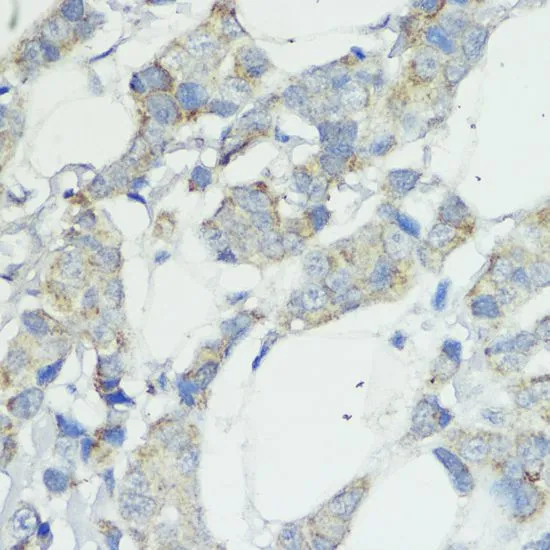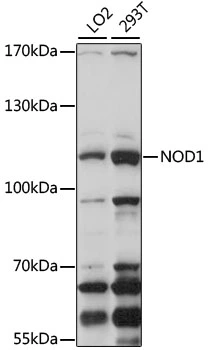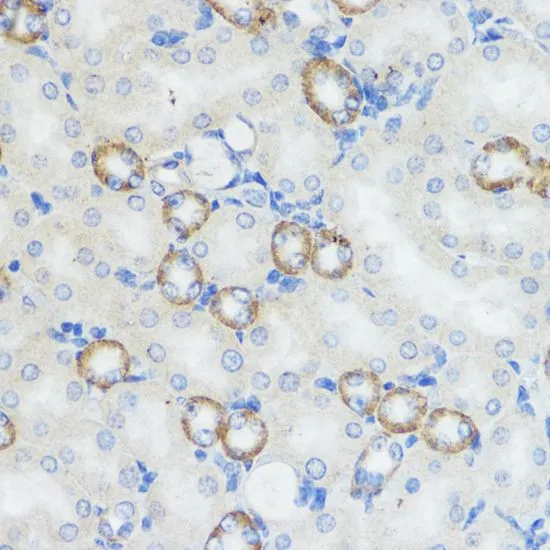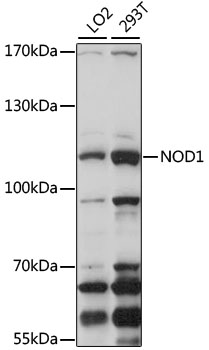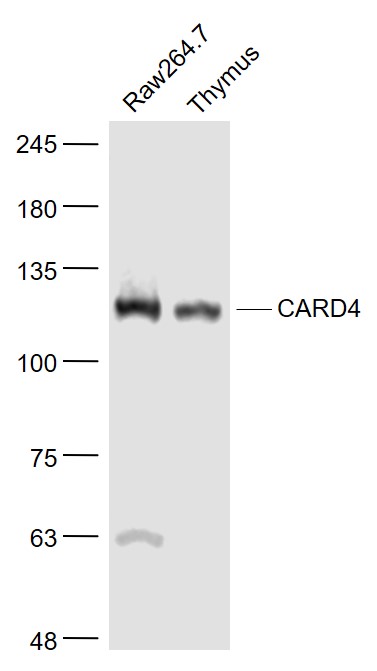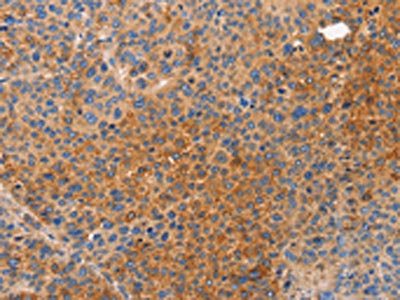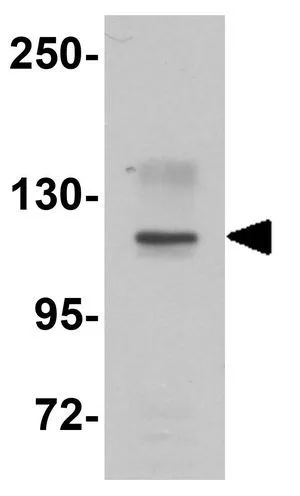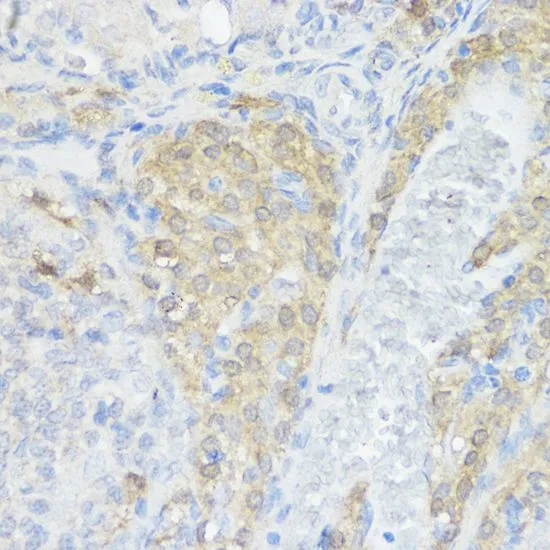
IHC-P analysis of rat ovary tissue using GTX54595 NOD1 antibody. Dilution : 1:100
NOD1 antibody
GTX54595
ApplicationsWestern Blot, ImmunoHistoChemistry, ImmunoHistoChemistry Paraffin
Product group Antibodies
ReactivityHuman, Mouse, Rat
TargetNOD1
Overview
- SupplierGeneTex
- Product NameNOD1 antibody
- Delivery Days Customer7
- Application Supplier NoteWB: 1:500 - 1:2000. IHC-P: 1:50 - 1:200. *Optimal dilutions/concentrations should be determined by the researcher.Not tested in other applications.
- ApplicationsWestern Blot, ImmunoHistoChemistry, ImmunoHistoChemistry Paraffin
- CertificationResearch Use Only
- ClonalityPolyclonal
- ConjugateUnconjugated
- Gene ID10392
- Target nameNOD1
- Target descriptionnucleotide binding oligomerization domain containing 1
- Target synonymsCARD4, CLR7.1, NLRC1, hNod1, nucleotide-binding oligomerization domain-containing protein 1, NLR family, CARD domain containing 1, caspase recruitment domain family, member 4, caspase recruitment domain-containing protein 4, nucleotide-binding oligomerization domain, leucine rich repeat and CARD domain containing 1
- HostRabbit
- IsotypeIgG
- Protein IDQ9Y239
- Protein NameNucleotide-binding oligomerization domain-containing protein 1
- Scientific DescriptionThis gene encodes a member of the nucleotide-binding oligomerization domain (NOD)-like receptor (NLR) family of proteins. The encoded protein plays a role in innate immunity by acting as a pattern-recognition receptor (PRR) that binds bacterial peptidoglycans and initiates inflammation. This protein has also been implicated in the immune response to viral and parasitic infection. Major structural features of this protein include an N-terminal caspase recruitment domain (CARD), a centrally located nucleotide-binding domain (NBD), and 10 tandem leucine-rich repeats (LRRs) in its C terminus. The CARD is involved in apoptotic signaling, LRRs participate in protein-protein interactions, and mutations in the NBD may affect the process of oligomerization and subsequent function of the LRR domain. Mutations in this gene are associated with asthma, inflammatory bowel disease, Behcet disease and sarcoidosis in human patients. [provided by RefSeq, Aug 2017]
- ReactivityHuman, Mouse, Rat
- Storage Instruction-20°C or -80°C,2°C to 8°C
- UNSPSC41116161

